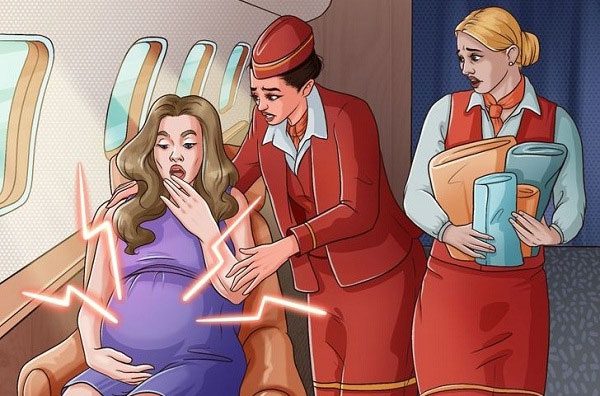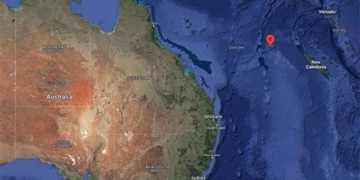While there are no official statistics, approximately 60 babies are born on airplanes each year. An airplane is not the delivery room that expectant mothers dream of, yet there are still rare cases where it happens.
Giving Birth on a Plane: What You Need to Know
The Crew Decides Whether an Emergency Landing is Necessary
Although most airlines have set limits on how far pregnant women can fly, typically no later than 38 weeks or 30 days before their due date, and must have a doctor’s note, there are still unexpected cases of labor.
Though rare, if a woman goes into labor, the crew has limited options. First of all, flight attendants are not trained to deliver babies. Therefore, at that moment, everyone hopes there is a doctor or nurse on board.
Laura Einstetler, a pilot for a major airline in the United States, stated that making an emergency landing in such cases is not feasible. She explained, “It takes at least 45 minutes to get passengers down from an altitude of 39,000 feet to a hospital. This option is inconvenient for other passengers, costly for the airline, and disrupts the aircraft’s schedule. Instead, the crew will act as special midwives.”

Flight attendants will act as midwives and assist in the delivery if no medical professionals are on the plane.
There Are No Set Rules Regarding the Citizenship of the Baby
While rules are not predefined and can vary depending on the airline and the territory over which the plane is flying, one thing is certain: the baby will have the same nationality as its biological parents.
The other possibility is that the baby will acquire the nationality of the country where the aircraft is registered or where the aircraft is located at the time of birth. For example, if a baby is born in any region within U.S. territory, even in the air, they will automatically receive U.S. citizenship.
Some Airlines May Offer Free Tickets for the Baby
Many sources suggest that babies born on airplanes will receive free flights for life. However, this is not true for everyone. Only certain babies are granted lifetime free flights, such as a boy born on an airline in India and a girl born on an EgyptAir flight.
Babies born on Polar Airlines, AirAsia, Asia Pacific Airlines, or Virgin Atlantic receive free tickets until they turn 21 years old.
The Plane Can Be Renamed to Celebrate the Baby Born on Board
In 2019, a JetBlue flight landed with one additional passenger. Medical staff and the crew assisted in delivering a baby boy while the plane was thousands of miles in the air. The airline renamed the aircraft “Born to Be Blue” in honor of the baby.
Some babies may even receive gifts from airlines. In 2018, a girl was born on a Chick-fil-A flight. She was offered food and even guaranteed a job position when she’s old enough.
The Baby’s Health May Be at Risk
There are several reasons why an airplane is not an ideal place for a baby to be born. First, the air is thinner up there, which can make it difficult for the baby to breathe. Secondly, there are no high-tech medical devices on the airplane to assist with labor, especially if an emergency cesarean is needed. Additionally, the baby’s ears may be affected by changes in air pressure.
Although giving birth in the air is quite rare, the crew will ensure that the mother feels as safe and comfortable as possible. The mother may be moved to a more spacious area, such as first class or business class.
According to air medical support company MedAire, in-flight births occur at a rate of about 1 in 26 million passengers. Dr. Paulo Alves, the global medical director of the company, stated: “Giving birth on an airplane is extremely rare and most cases are premature births. This is not the best condition for childbirth due to the thinner air on airplanes. Both the mother and the baby could be in danger without a qualified obstetrician and high-tech equipment to assist if problems arise.”


















































